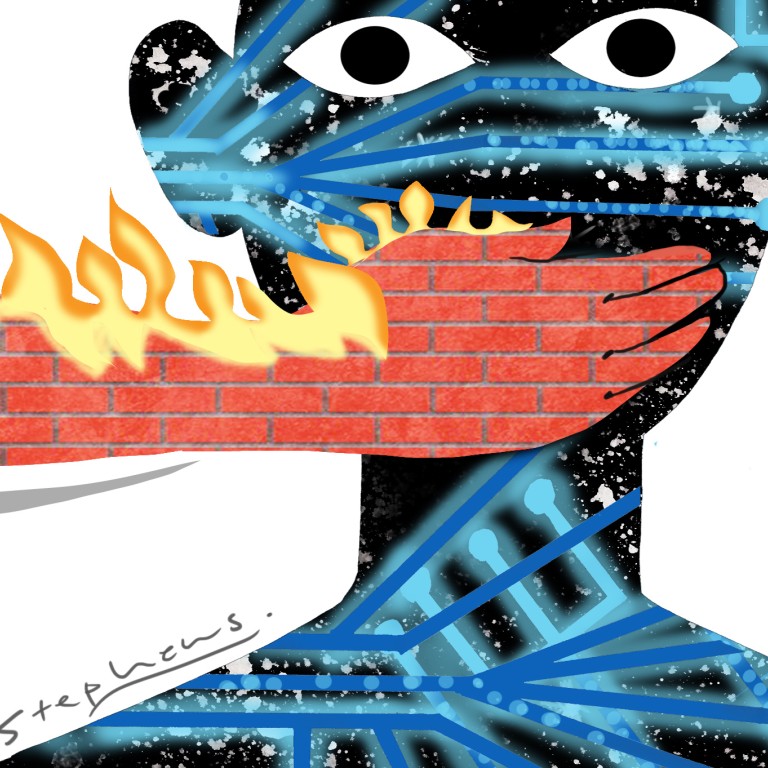
In cyberspace, China’s aim is to control and censor, no matter what it says
Zhou Zunyou says China’s draft law on cybersecurity shows clearly that its intent is to control free speech, rather than protect rights

READ MORE: Cybersecurity is a worthy goal, but the internet is also about free information flows
Every time China is accused of curbing freedom of expression in cyberspace, Beijing argues that such freedom requires limits and that it manages – rather than censors – cyberspace, in accordance with the law. Since “the rule of law” has become a motto of the Communist Party, one may wonder what policies China will put in place to address the internet risks and whether criticism of China’s cyberspace censorship is justified. This makes it all the more important to carefully study the draft cybersecurity law it released in July.
If history is any indication, when the two fundamental human values – security and liberty – are conflated, the latter usually has little chance of survival
A high point of the cybersecurity bill is the leadership role awarded to the Cyberspace Administration of China. As such, the agency will be elevated to a powerful internet regulator, with responsibility for administering, coordinating and supervising cyberspace affairs; other public offices will play only subordinate roles.
The agency is headed by Lu Wei, who is also deputy head of the Propaganda Department, a party organ in charge of ideology. Lu’s position within the party shows that the internet regulator is focused on cyberspace censorship above all.
Close scrutiny of the draft law underscores that censorship. While Articles 34 to 39 include measures designed to protect personal information, Articles 40 to 43 concern the duties of internet service operators and the powers of government agencies to stop or block the transmission of any – personal or non-personal – information prohibited by law. Given that all these provisions are in one chapter titled “internet information security”, it is questionable whether their real purpose is to protect cyberspace privacy or implement censorship.
READ MORE: Why China’s draft cybersecurity law has chilling implications for the internet and multinationals

The answer may be found in a 2013 speech by Lu, who outlined the four aspects of the Chinese concept of cybersecurity: security of cyberspace sovereignty; security of internet information; security of privacy in cyberspace; and security of information technology. Among them, the third aspect deserves special attention. Fundamental rights such as privacy are typically considered defensive rights of the people against interventions of the state. Since privacy (of the people) and security (of the state) are by nature at odds, they cannot, in most cases, be reconciled. But Lu, who coined the term “security of privacy”, seems to see no contradiction between them. If history is any indication, when the two fundamental human values – security and liberty – are conflated, the latter usually has little chance of survival.
Seen through the lens of Xi’s ‘overall national security outlook’, social stability is synonymous with national security
Moreover, while there are many obligations imposed on internet service providers and internet users – and many powers granted to the government – there are few provisions aimed at human rights protection. The draft law appears only to address questions of how the government can govern cyberspace and how companies and individuals need to cooperate.
Given its potential to undermine the credibility and legitimacy of the party, free access to information through the internet is deemed a challenge to social stability. Seen through the lens of Xi’s “overall national security outlook”, social stability is synonymous with national security. In 2013, Xi spoke of the threat to “national security and social stability” posed by the rapidly growing number of social network users and instant messaging tools.
READ MORE: Double standards: China’s push to develop internet for economic gain tempered by strict censorship

READ MORE: Chinese rights lawyer Pu Zhiqiang pays price for beliefs
Judging by the sweeping draft law on cybersecurity, ‘Chinese characteristics’ would seem to mean that order in cyberspace outweighs freedom of speech
The conference in Wuzhen was part of China’s push to promote its vision of global internet governance. While most Western countries stress the open nature of the internet, China advocates the concept of “cyberspace sovereignty”, in the sense that cyberspace is divided into different territories and each country can set rules for governing its own territory.
Several days before the conference, Lu claimed to be seeking a way to manage the internet “with Chinese characteristics”. Judging by the sweeping draft law on cybersecurity, bestowing on the government almost unbridled power to censor cyberspace, “Chinese characteristics” would seem to mean that order in cyberspace outweighs freedom of speech. If that’s the case, it may not be a desirable outcome.
Dr Zhou Zunyou is head of the China section at Germany’s Max Planck Institute for Foreign and International Criminal Law, and the author of Balancing Security and Liberty: Counter-Terrorism Legislation in Germany and China

